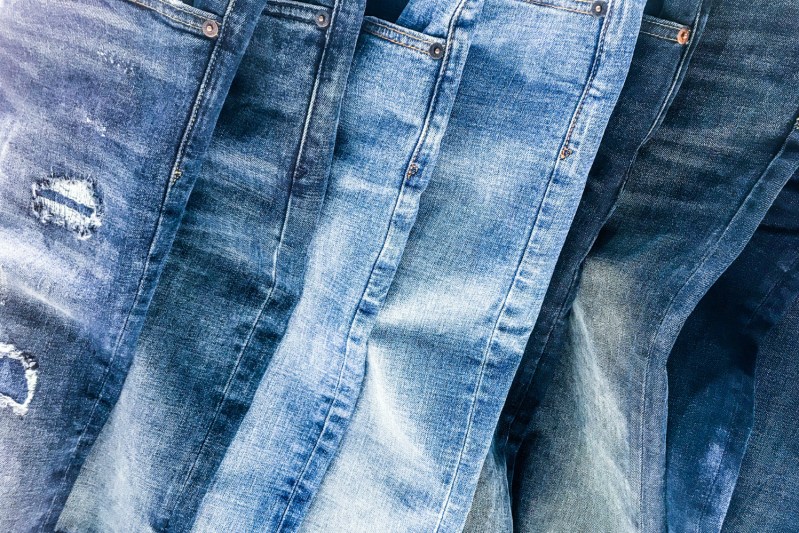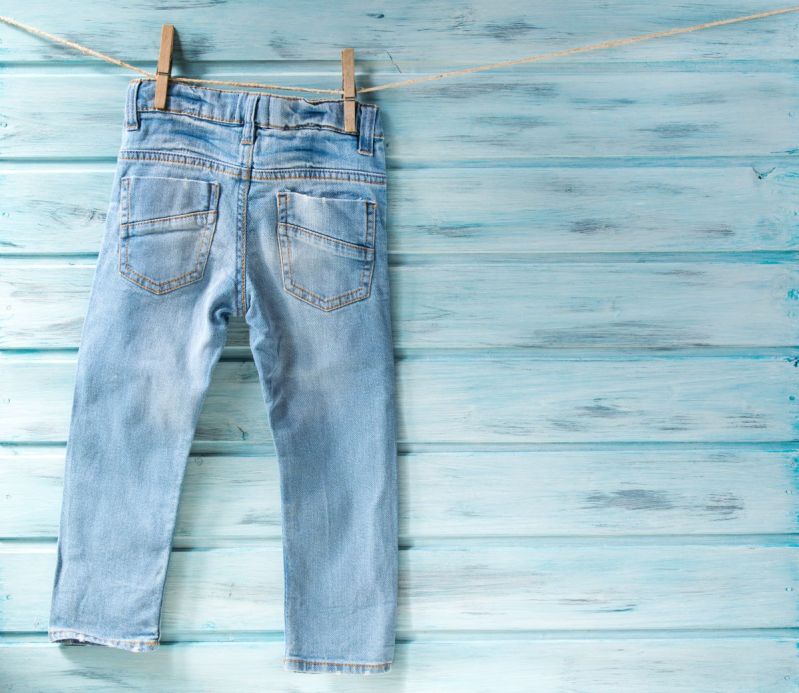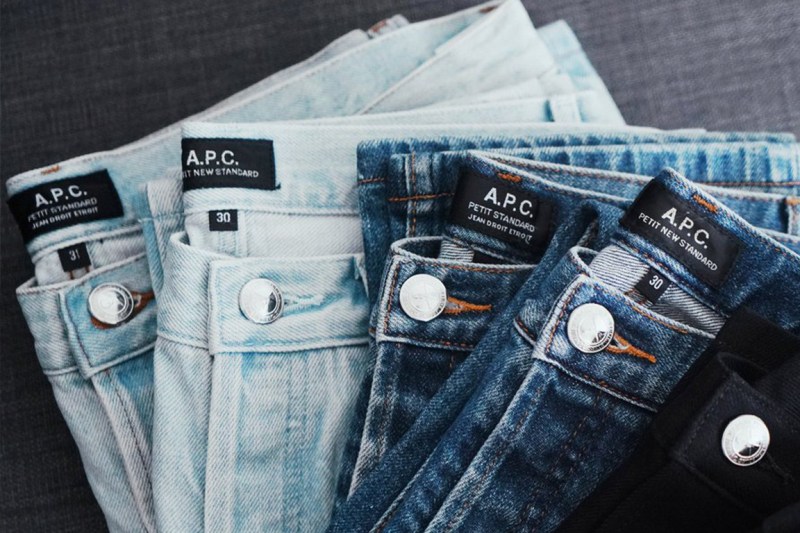Recently, I reached into a friend’s freezer for an ice sphere and came across a pair of neatly folded jeans. This sight took me by surprise not because it was unusual, but because the practice felt so dated. For those that might not have heard of the practice, the idea behind freezing your best jeans is that freezing denim kills bacteria from well-worn jeans without actually having to wash them and affect the fade or overall integrity of the denim.

When did freezing jeans become a thing?
Jeans have been around since 1871. These popular pants were invented by Jacob W. Davis and patented by Davis and Levi Strauss. Though people have anecdotally frozen their denim for years, more as an odor-removing process than anything else, Levi Strauss actually pushed this practice into the mainstream in 2011. In 2014, Levi Strauss’ CEO Chip Bergh repeated longstanding advice from the jean company; don’t wash your jeans, freeze them instead. Bergh’s reminder was more of a conservation effort to get people to freeze their jeans to stretch out the time between washes.
Are jeans in the freezer a good idea?
Besides taking up precious freezer space, are freezing jeans actually a smart thing to do? People wash their clothing because it’s dirty. Too much time between washes and of course jeans will start to smell. It’s the buildup of dead skin cells, oil, dirt, and whatever else your jeans have come in contact with. Does freezing jeans, kill those germs?
Not according to scientists.
“One might think that if the temperature drops well below the human body temperature [the bacteria] will not survive, but actually many will,” Stephen Craig Cary, a University of Delaware expert on frozen microbes told Smithsonian Magazine. “Many are preadapted to survive low temperatures.”
The germs that do survive, quickly populate once those jeans are defrosted and back on your body.

Save the freezer space
Raw denim aficionados have always tried to keep their jeans and denim jackets away from water for as long as possible. Doing so gives them control of fade patterns and creases.
In reality, wear affects the fabric just as much, if not more than, regularly washing denim. Freezing jeans isn’t necessarily going to extend the life of your favorite pair. It is okay though to extend the time between washes.

Deodorizing your jeans
Between washes, your best bet is to hang your denim outside or by a window or fan to diminish odors and bacteria, according to Rachel McQueen, a professor of human ecology at the University of Alberta in Canada. For a more aggressive attack on smells, fabric freshening sprays or diluted vinegar sprays should get the funk out.

When to wash your jeans
Every four to six weeks, depending on wear frequency, you should wash your denim. Of course, they are your clothes, so you can go as long as you’re comfortable with, especially since most of the germs are just from your skin.
Heddels Denim Wash

You can forget the bathtub method for all but very expensive raw denim; it’s time-consuming and won’t get your clothes as clean as a washing machine. Instead, isolate your denim in a cold wash where you should use anti-fade detergent or specially formulated denim detergent (like the recommended Heddels Denim Wash above). Turn everything inside out to protect the color and make it easier to get your body’s oils out of the fabric.
The actual worst culprit of detrimental denim washing is the dryer. You should never dry denim on high heat. A combination of medium to no heat and air drying (preferably just the latter, but sometimes you need your denim fast) will elongate the life of your threads and you don’t have to walk around in your own bacteria for months.

So, keep the jeans out of the freezer
The bottom line about freezing jeans is to defrost it. Save the freezer space for your food and ice. Jeans in the freezer doesn’t kill all the germs that accumulate over time. It’s okay to wash your jeans when you need to. The bigger issue for extending the life of your jeans is the dryer. Air-dry whenever possible.




